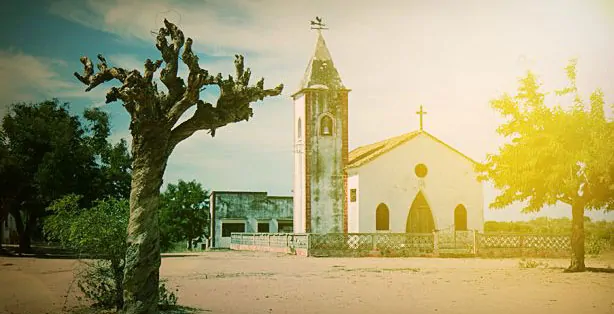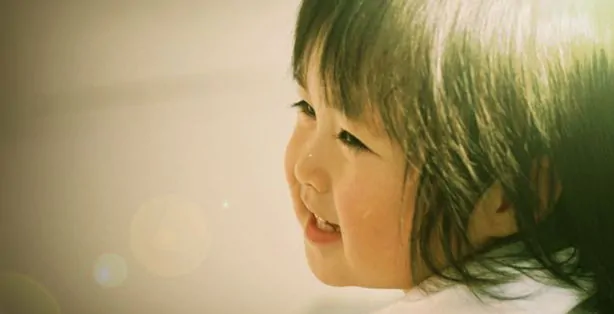
Since being forced to flee Sierra Leone in 1997 during its violent civil war, Dr. John Jusu—now a professor, ordained minister and tireless advocate for those in need—has come a long way. Born in 1963 in Bumpe, a village in Sierra Leone, West Africa, Jusu has witnessed terrible suffering, including the atrocities committed by war rebels, whose trademark was to hack off victims’ hands and feet. Jusu is passionate about curing the ills that still plague diamond-rich Sierra Leone and Africa. He is fighting against poverty, illiteracy, corruption and HIV/AIDS. He believes creating a proactive church is one way to bring a cure.
A firm believer in education, Jusu graduated from Njala University College in Sierra Leone with a bachelor’s degree in education in 1986. He earned two masters’ degrees from the Nairobi Evangelical Graduate School of Theology (NEGST). He was later awarded funding by the Christian International Scholarship Foundation to earn his doctorate in educational studies at Trinity Evangelical Divinity School in Deerfield, Ill. He is currently a professor in the educational studies department at NEGST.
Jusu is ordained with the United Brethren Church in Christ in Sierra Leone. He serves at Good Shepherd Church, which is part of the African Gospel Church in Nairobi. He resides in Nairobi with his wife and two of their four children. Much of his time is devoted to the African curriculum project, More Than a Mile Deep, which is an effort he refers to as “non-formal education work” for social transformation. Explaining the title, he says someone once called Christianity in Africa “a mile wide and an inch deep.” The comment moved him and a team of like-minded professionals to “make sure African Christianity was more than a mile deep.”
The More Than a Mile Deep project is in partnership with Entrust, a Christian organization based in Colorado, whose mission is “to multiply church leaders through accessible, locally owned, reproducible training systems.” The project has made successful inroads into eight countries. Because they are a faith-based group, More Than a Mile Deep does not normally find themselves at odds with governments, though treading carefully is always best, Jusu says.
The Church Is a Window
The Christian church faces a variety of challenges in Africa. One of those is taking responsibility for what happens within society, explains Jusu. “The church and the Kingdom of God on earth are the window through which people will see God’s idea for humanity. When people look through the window of my church, I want them to see what God intends for family, politics and fellowship.”
He also believes African churches must be economically self-sufficient. “That is the missionary paradigm. We established churches and left them with the idea that other people will care for the church’s needs. Originally the support came from America or Britain. After independence, they went back to their countries and we still believe support will come from the north or west. Before you know it, we are broke and have not been able to respond to HIV/AIDS, political violence and the environment. These are all issues we are trying to address.”
Development Begins with a Critical Mind
One of Jusu’s major goals is to provide people with “the entire story” of the Bible. “Most of the challenges we are facing in spreading the Word in Africa is because of a distorted view of the Bible. We do not see the Bible as God’s complete revelation of Himself to His people. The creation–fall–redemption rhythm of the Bible is often not considered. … People tend to concentrate on only one of these three phases [the creation, the fall or our redemption] when building their theologies of life and ministry. This creates a worldview that is not holistic,” Jusu says.
He adds that he believes the losing battle against corruption, poverty, HIV/AIDS and environmental preservation, is caused by what he terms “faulty worldviews.” His passion and ministry is centered on worldview transformation. “Many believe these problems are not the responsibility of the church, which is a wrong worldview caused by an inaccurate hermeneutic (or interpretation) of the Bible. Many believe money and democracy can solve the problem, which is a wrong worldview caused by secularism. Some believe that people are poor because God wants them to be so, and that is a wrong worldview caused by animism [—the belief that a supernatural force directs (animates) and organizes the universe]. All these worldviews have implications for development. If the church … [only] responds to injustice with sermons, it will never be proactive in stopping it.”
Jusu spends time addressing these conflicting worldviews and attempts to transform them into a biblical worldview. “I try to help people examine their brokenness from a biblical perspective. Development starts with a reformed mind: a mind that is critical about the present situation, the mind that asks soul-searching questions. In Romans 12, Paul says it is only by the renewal of the mind that we shall know the will of God in our lives. We can only have such renewed minds by [studying] the Bible for all its worth.”
Karen Jones is a Senior Writer for Bible Study Magazine and has written for publications like The New York Times and Reader’s Digest.
Article courtesy of Bible Study Magazine published by Logos Bible Software. Each issue of Bible Study Magazine provides tools and methods for Bible study as well as insights from people like John Piper, Beth Moore, Mark Driscoll, Kay Arthur, Matt Chandler, Randy Alcorn, Barry Black and more. More information is available at BibleStudyMagazine.com. Originally published in print: Copyright Bible Study Magazine (Sept–Oct 2010): pgs. 16–18.






















